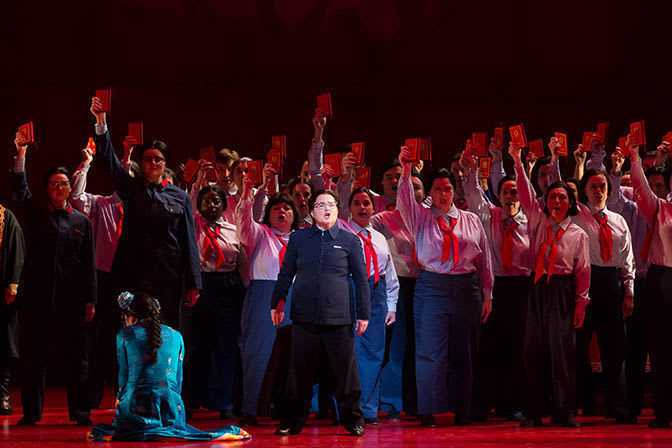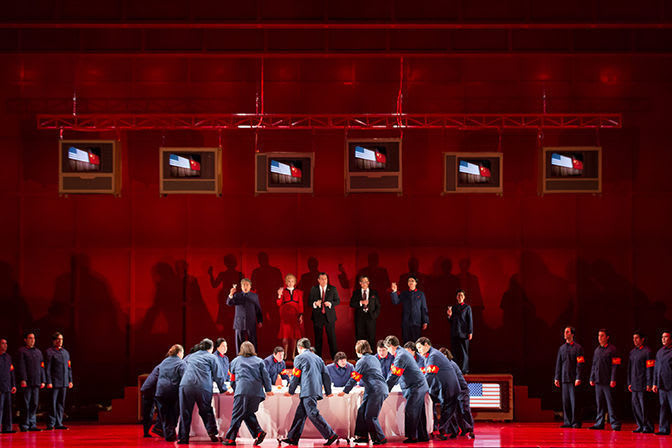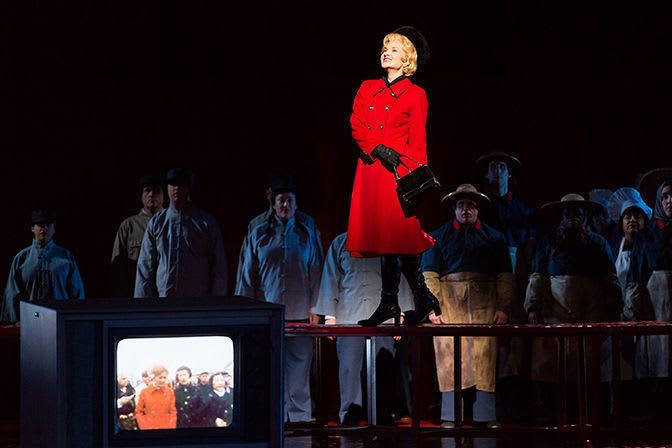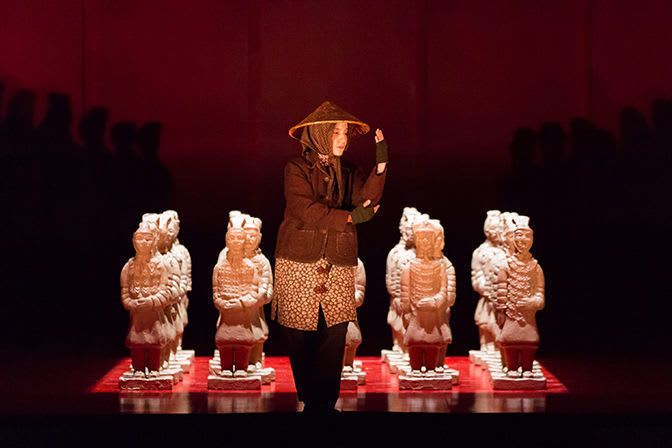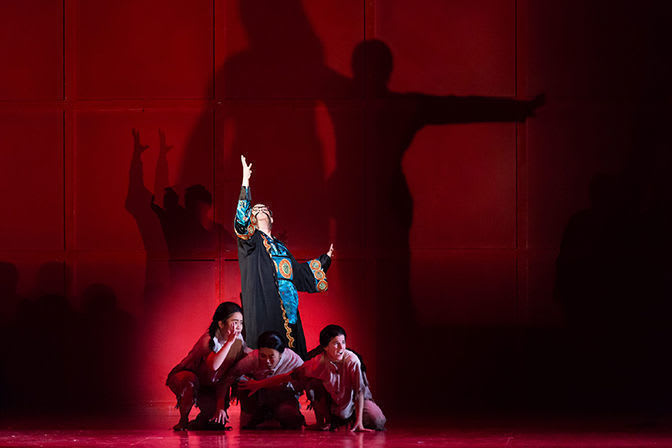On January 20, 2017, a day that was already of great historic importance for those of us in the States (the Inauguration of the 45th President of the United States), the Houston Grand Opera premièred a revival of a work they had commissioned in 1987 in partnership with the Brooklyn Academy of Music, Netherlands Opera, and the Washington Opera.
For me, at least, Nixon in China, the first of John Adams's operas, had an eerie resonance (whether intended or not) with the recent election and swearing in of Donald Trump and his interest in Russia, one that seems to parallel Nixon's groundbreaking 1972 trip to a then little-known China in ways that question and challenge American imperialism.
The original production (which I saw a few years after the Houston première, though I don't remember where) was, to my memory, much more straightforward than the current effort at the HGO. It stressed, again, as I remember, the historical importance and factuality of that visit. HGO's revival seemed to exist on a broader scale than that production, excellent as it was: current director James Robinson emphasised the mythic quality of Richard Nixon, an American icon brought down by a political scandal that still affects the US.
In part, Robinson did this through the inclusions of many televsion sets some hung in the air, some on wheels that allowed them to be rolled around, showing a montage of both video and stills from the actual trip—a great job by projection designer Wendall K Harrington. While the use of historical materials did indeed harken back to the facts of the case, the switching back and forth created a world in which Nixon was as much a media creation (for better or for worse) than he was a person in the real world; after all, Nixon's first aria—which begins with the first word sung by a soloist—is all about the American news and its role in history:
News has a kind of mystery:
when I shook hands with Chou En-lai
on this bare field outside Peking,
just now, the world was listening.
(Adams's music is always wonderful, but so much of the joy of being at a production of Nixon in China is Goodman's rich, complex libretto). Scott Hendricks's Richard Nixon is a dramatic tour de force; because of the larger than life quality that librettist Alice Goodman and composer John Adams bring to the opera, he has to fill the immense space of the Brown Theater (as do all the singers and dancers) in ways that don't lose the humanity of the characters, something he, and the cast generally, manage wonderfully.
The stars of the opera, though, are Pat Nixon (wonderfully realized by Andriana Churchman) and Madame Mao Tse-Tung, a great job by Tracy Dahl. Pat Nixon has some of the best music in the opera including the wonderfully elegiac "This is prophetic...". The text of that aria is is evocative of Yeats and Auden, to my ear:
...Yes! Let the band play on and on,
let the stand-up comedian finish his act,
let Gypsy Rose kick off her high-heeled party shoes;
let interested businessmen speculate further,
let routine dull the edge of mortality.
Let days grow imperceptibly longer,
let the sun set in cloud;
let lonely drivers on the road pull over for a bite to eat,
let the farmer switch on the light over the porch,
let passer by look in at the large family
around the table, let them pass.
Let the expression on the face
of the Statue of Liberty change just a little,
let her see what lies inland...
And the showstopper is Madame Mao's anthem, "I am the wife of Mao Tse-tung". Tracy Dahl (performing ill that night) does a great job of projecting the character of a woman who changed the fate of her country. Even in the face of a head cold, she has a lovely voice used to great affect.
And as always, the Kissinger of Adams's opera is the one misstep of the whole affair—he's played as a bit of a buffoon, rather than as the dark master of American foreign policy of the period that he was. He is sung by Patrick Carfizzi, who does his best with what he has to work with. Singers Chad Shelton (Mao Tse-tung) and Chen-Ye Yuan (Chou En-lai) are in fine voice as well, with Shelton's Mao a figure both of great power, but also a man who was deeply ill at the time of the visit.
The production, generally, then is both smart and beautiful, and is exciting to watch as the events of that historic trip unfold on stage. But the best is the last scene, consisting as it does with a night piece, mostly a quintet, in which the principals, absent Kissinger, recall and lament what they have made of their lives in some of the most beautiful music ever written for the American stage.
HGO's Nixon in China is a lovely evening all told.
